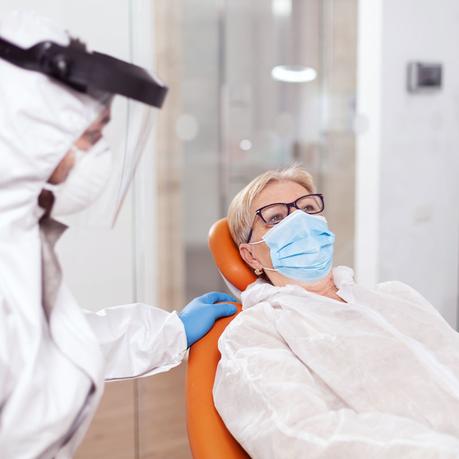
Urgent dental treatment is a treatment that involves the management of significant dental pain such as the inability to sleep from a toothache or possible conditions that could lead to an emergency, such as if left unchecked for six months to help avoid a dental emergency, one of the best things you can do is have regular maintenance visits with your dentist other things you can do is be mindful of eating certain items such as bread things that are hard and crunchy that you bite. You pull against such as bread as well.
If you’re playing a sport, make sure you’re wearing your mouthguard, especially if it’s a contact sport, so if someone feels that they’re in a position of a dental emergency, you should contact your dentist.
If your child’s experiencing toothache or gum pain, don’t hesitate to contact your dentist.
How to Handle the Most Common Dental Emergency
here are the five most common dental emergencies and how to handle them. A dental emergency can strike at any time and when you least expect them. While they significantly differ in their levels of extremity, they rarely go away on their own and can lead to oral health complications when left untreated. So, how do you know when you’re headed for an emergency?
KNOCKED OUT TOOTH
Perhaps you have a knocked-out tooth. A knocked-out tooth happens when your entire tooth, including the root, gets forcibly detached from the gum tissue that supports it.
- Pick up the tooth by the crown rather than the root to avoid damaging the nerve.
- Place it in the container with just enough milk to keep the tooth hydrated.
- See a dentist or oral health therapist within an hour of the incident to improve your chances of reimplantation.
Emergency APPOINTMENT
Patient name Contact Number Email Date of birth Which day of the week would you prefer for your appointment? Any / First Available Monday Tuesday Wednesday Thursday Friday Saturday Which time slot would you prefer? Any / First Available 9 - 11 AM 11 - 1PM 2 - 4 PM 4 - 6 PM 6 - 9 PMLOST FILLING
- Another typical dental emergency is a lost filling. Tooth filling doesn’t last forever. You can lose one if the tooth field is decayed or broken, or it can come loose after years of chewing.
- A dental visit is your best bet.
- If you can’t get to one right away, You can buy dental cement at drugstores and fill the space where the filling used to be.
- A stick of sugarless gum can also do the trick; make sure it’s sugar-free-anything with sugar and will hurt.
Chipped or Broken Tooth
Perhaps you’ve chipped or broken a tooth. Teeth get damaged for various reasons -from eating something hard to falling over, to suffering a blow to the face and playing sports. A chip or a break could also develop slowly due to wear and tear. The Best Way to Handle a Chipped or Broken Tooth
- Rinse your mouth with warm saltwater.
- If you are bleeding, apply pressure to the area with a piece of gauze until it stops. To reduce swelling and relieve pain, hold a cold compress against the outside of the cheek.
- From there, get the care of a dentist or oral health therapist to prevent dental problems.
Abscess Tooth
You also have an abscessed tooth. An abscessed tooth is often caused by a bacterial infection brought on by tooth decay or infrequent dental care.
- Call your dentist or oral health therapist; they may prescribe painkillers or an antibiotic to dull the pain and help prevent infection.
- If that isn’t an option, rinse your mouth out with warm salt water and take acetaminophen or ibuprofen to help with the infection-related fever you may have.
Severe Toothache
Finally, there is a severe toothache. Severe toothache is caused by various factors such as tooth decay, gum infection, or wisdom tooth eruption, All of which give radiating pain.
The Best Way to Deal with Severe Toothache
- Thoroughly rinse your mouth with warm salt water to reduce irritation and swelling.
- You can also take ibuprofen to relieve inflammation and pain.
- Toothaches are generally a dental problem, so consider visiting your dentist or oral health therapist soon.
Remember prevention is key; while these tips can help provide some relief, the best way to avoid dental problems and other complications are to visit your dentist and get professional care.
QUALITY AFFORDABLE DENTAL IMPLANTS
Copperhills Family Dentistry specialists provide specialized dental services that help our patients cultivate healthy and happy smiles. We’re happy to provide compassionate care coupled with cutting-edge technology.
dental implantsCommon type of Dental Emergency
Dental-related pain has been described as the most excruciating type of pain anyone can experience. This is why it is essential to see a dentist as soon as possible when you feel the onset of a toothache. Here are the most common types of Dental Emergencies: Toothaches.
Toothaches can have different causes or origins, such as Trauma leading to painful cracks or fractures in the tooth. Bruxism or teeth-grinding, which often happens while sleeping, can also cause toothaches or hypersensitivity.
Dental decay left untreated and encroaching on the nerve can cause severe pain.
Infection or local dental abscesses can trigger toothaches as well.

Whitening cosmetic
dentistry dental cleaning
and checkups
TOOTHACHES CAN ALMOST ALWAYS BE SUCCESSFULLY TREATED BY EXTRACTING THE TOOTH OR PERFORMING ROOT CANAL THERAPY. Fractured Teeth caused by accidental injury or Trauma can sometimes cause pain or discomfort or can be a cosmetic concern if a front tooth is affected. Fractured teeth can be restored with a filling or a crown. When pain is involved, sometimes Root Canal Therapy must be performed.
In some instances, badly fractured teeth are considered non-restorable. This means the tooth cannot be fixed and should therefore be extracted. A dental implant, bridge, or removable prosthesis can be used to replace the missing tooth.
Displaced or Luxated teeth caused by Trauma can be treated by repositioning the tooth or teeth and splinting them to adjacent undamaged teeth. A wire or other bondable material can be used to do this. Follow-up appointments with a dentist are required.
Lost or Avulsed teeth caused by Trauma. If the entire tooth, including the root, comes out of the socket, it should be manually replaced into the socket and see a dentist immediately. A less desirable option is to put the tooth in milk. Generally speaking, if the tooth is returned within 60 minutes and splinted, there is a decent chance of success.
More severe infections with a dental origin lead to swelling or infection in the face, head, or neck. These infections can be treated with antibiotics and extraction or root canal therapy of the infected tooth. In some instances, IV antibiotics with or without surgical drainage at the hospital will be necessary.
If you or someone you know has a toothache or dental pain, please call us, and someone at Copperhills Family Dentistry will help as soon as possible.
How to treat children with dental emergency
A dental emergency like a knocked-out tooth is common in kids and teens.
What should you do if it happens? Dentists say that if it’s a permanent tooth, time is critical in saving it.
If this happens to your child, Dr. Laleh says to position the tooth back into the socket and have your child hold it in place by biting down on a piece of gauze.
If you can’t do that, the most important thing is to keep the tooth moist. If you could have your child spit into a cup and keep it in the spit, spit is the best option. But milk over water — you don’t want to put it in water. Then get your child to the dentist immediately so they can stabilize the tooth. And so basically, we would put some stabilizing wire and then bond it with a composite material just like a filling material. Whether a knocked-out tooth can successfully regrow the ligament that reconnects it to the bone depends on how soon the tooth gets back into the mouth. If you get it in within 60 minutes — if not immediately after it gets knocked out — it has a high success rate of staying in for a long time. If it’s out of the mouth for more than 60 minutes, the success rate drops significantly. For a most dental emergencies, families are encouraged to contact their dentist before going to the ER.
So contact your dentist first if you have a knocked-out tooth, a chipped tooth, a cracked tooth, or an abscess; we want to help you with that.

